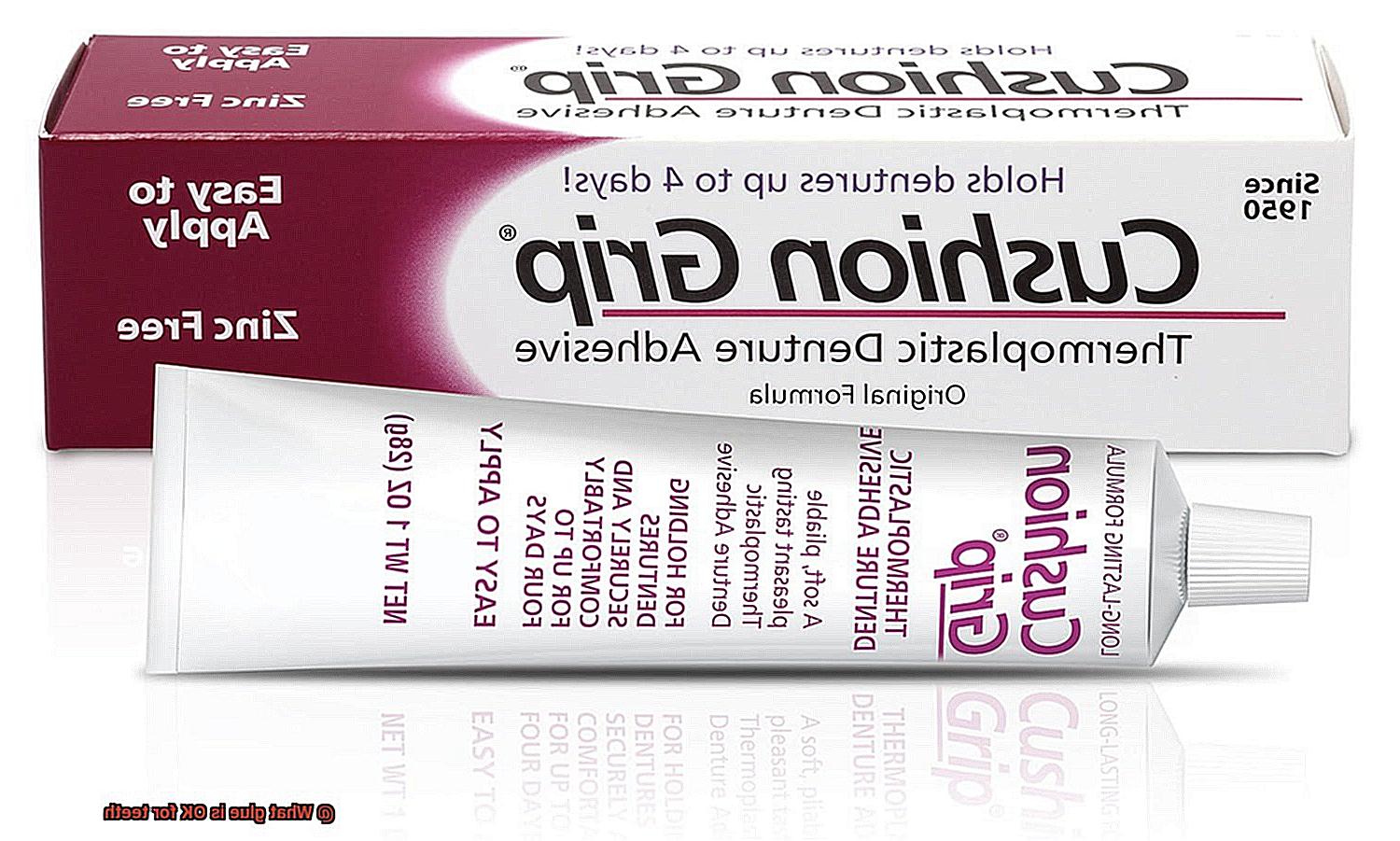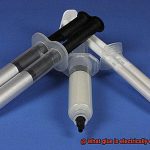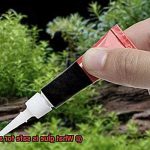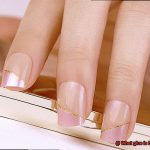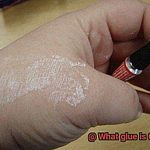Have you ever experienced the panic of a broken tooth or a loose dental restoration? It’s not a pleasant feeling, and your first instinct may be to fix it yourself. But before you grab any old glue from your toolbox, you need to know what is safe for your teeth.
Contrary to popular belief, not all adhesives are created equal. In fact, many can be hazardous if ingested or applied to sensitive areas like your mouth. Some can even cause damage to existing dental work or lead to infection.
So, what glue can you use on your teeth? The answer depends on the situation. For quick fixes, dental wax or over-the-counter adhesives may do the trick. However, for more significant issues or long-term repairs, it’s crucial to consult with your dentist and use the right product safely.
In this post, we’ll dive into different types of dental adhesives and what to consider when choosing the best one for you. We’ll also explore the risks of using the wrong glue and how to make informed decisions about your dental health.
Don’t let a broken tooth or dislodged restoration ruin your day – learn about safe dental adhesives and keep smiling bright.
Types of Glues to Avoid on Teeth
Contents
Using glue on your teeth can be a tempting solution, but it’s important to choose the right type of glue to avoid causing harm or damage. Here are five types of glue that you should avoid using in your mouth:
Superglue or cyanoacrylate glue
This type of glue bonds quickly and strongly but can cause damage to your enamel and irritate or trigger allergic reactions in your mouth. It’s also toxic if ingested and not designed for oral use.
Epoxy glue
This two-part adhesive can harden quickly and cause damage if not applied correctly. It contains chemicals that can be harmful if ingested or inhaled and may cause irritation or allergic reactions in the mouth.
Contact cement
Although it sets quickly and creates a strong bond, contact cement may contain harmful chemicals that can irritate your gums and damage your teeth.
Industrial-strength adhesive
These products aren’t designed for use in the mouth and can cause serious harm or injury.
Household adhesives
Household glues like wood glue or all-purpose glue should never be used on teeth as they are not designed for oral use and can be hazardous if ingested.
To safely repair teeth with glue, it’s best to choose dental adhesives that are specifically designed for oral use. These products are formulated to be safe and effective for use in the mouth, and they can help to bond dental prosthetics such as dentures or braces securely in place without causing harm or damage.
Benefits of Dental Adhesive
Dental adhesive, also known as dental glue, is a versatile material that has revolutionized the way dental restorations, like fillings or crowns, are bonded to natural teeth. It provides numerous benefits for those looking to restore their smile. Let’s dive into some of the top benefits of using dental adhesive.
Strong and Secure Bonding
Dental adhesive creates a strong and secure bond between the restoration and the natural tooth. This helps to ensure that the restoration stays in place and doesn’t become loose or fall out over time.
Dental adhesive provides a reliable solution for those who have lost teeth due to injury or decay. It is also an excellent option for those who want to avoid traditional methods of bonding restorations, such as using metal wires or brackets.
Improved Appearance
Dental adhesive not only provides functional benefits; it can also enhance the appearance of your teeth. By bonding restorations to your natural teeth, dental adhesive can improve the color, shape, and alignment of your smile. With a more aesthetically pleasing smile, you’ll feel more confident and self-assured.
Reduced Sensitivity
Sensitive teeth can be a real pain. Fortunately, dental adhesive can help by sealing gaps between the restoration and the natural tooth. This can reduce sensitivity by preventing hot or cold temperatures from reaching the sensitive areas of your teeth. No more wincing in pain when you take a bite of your favorite ice cream.
Prevent Further Damage
Dental adhesive not only helps restore damaged teeth; it also helps protect your natural teeth from further damage. By filling in gaps and crevices between the restoration and the tooth, dental adhesive can prevent bacteria from entering and causing decay or infection. This makes it an excellent choice for individuals who want to maintain their oral health after undergoing a restorative procedure.
Safe and Effective Solution
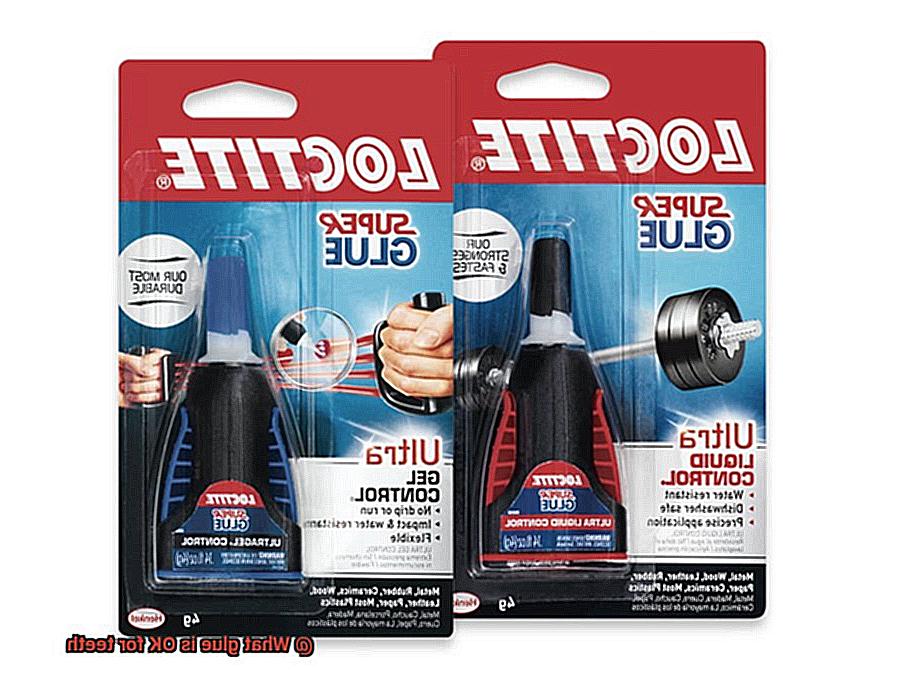
Overall, dental adhesive is a safe and effective solution for those looking to restore their smile. It is easy to use and provides long-lasting results. However, it’s important to consult with a dentist before using any type of dental material to ensure that it’s appropriate for your specific needs and circumstances.
How to Use Dental Adhesive at Home
Using dental adhesive at home can be a game-changer for those with dentures, partials, or broken teeth. It can help them maintain their oral health and improve their quality of life by ensuring that their dental prosthesis stay in place comfortably and securely. However, it is vital to select the right type of adhesive and apply it correctly to prevent any harm to your teeth or gums. Here are some steps to follow when using dental adhesive at home:
Choose the Right Adhesive
Select a dental adhesive specifically designed for oral use and approved by the American Dental Association (ADA). Avoid using household glues or superglue on your teeth as they can be toxic and harmful.
Clean Your Dentures
Before applying any adhesive, make sure your dentures are clean and dry. Use a mild soap and water to clean them thoroughly, rinse well, and dry them completely.
Apply the Adhesive
For paste adhesive, apply a small amount of the paste onto the denture in a thin layer, avoiding the edges. Powders should be sprinkled onto wet dentures, shaking off any excess before placing them into your mouth.
Secure Your Dentures in Place
Place your dentures into your mouth and bite down firmly for a few seconds to secure them in place. Avoid eating or drinking for at least 15 minutes after applying the adhesive to allow it to set properly.
Monitor Your Dentures
If your dentures feel loose during the day, add more adhesive as needed. However, be careful not to overuse it as this can cause discomfort and damage to your dentures.
Remove and Clean Your Dentures Daily
It is essential to remove and clean your dentures daily to prevent any buildup of bacteria or adhesive residue. Make sure you use a soft-bristle brush and non-abrasive cleaner specifically designed for dentures.
Tips for Applying Dental Adhesive
Dental adhesive is a reliable solution for restoring damaged teeth. However, it’s important to follow some tips and tricks to ensure a successful and long-lasting bond. Here are five tips that explain how to apply dental adhesive effectively:
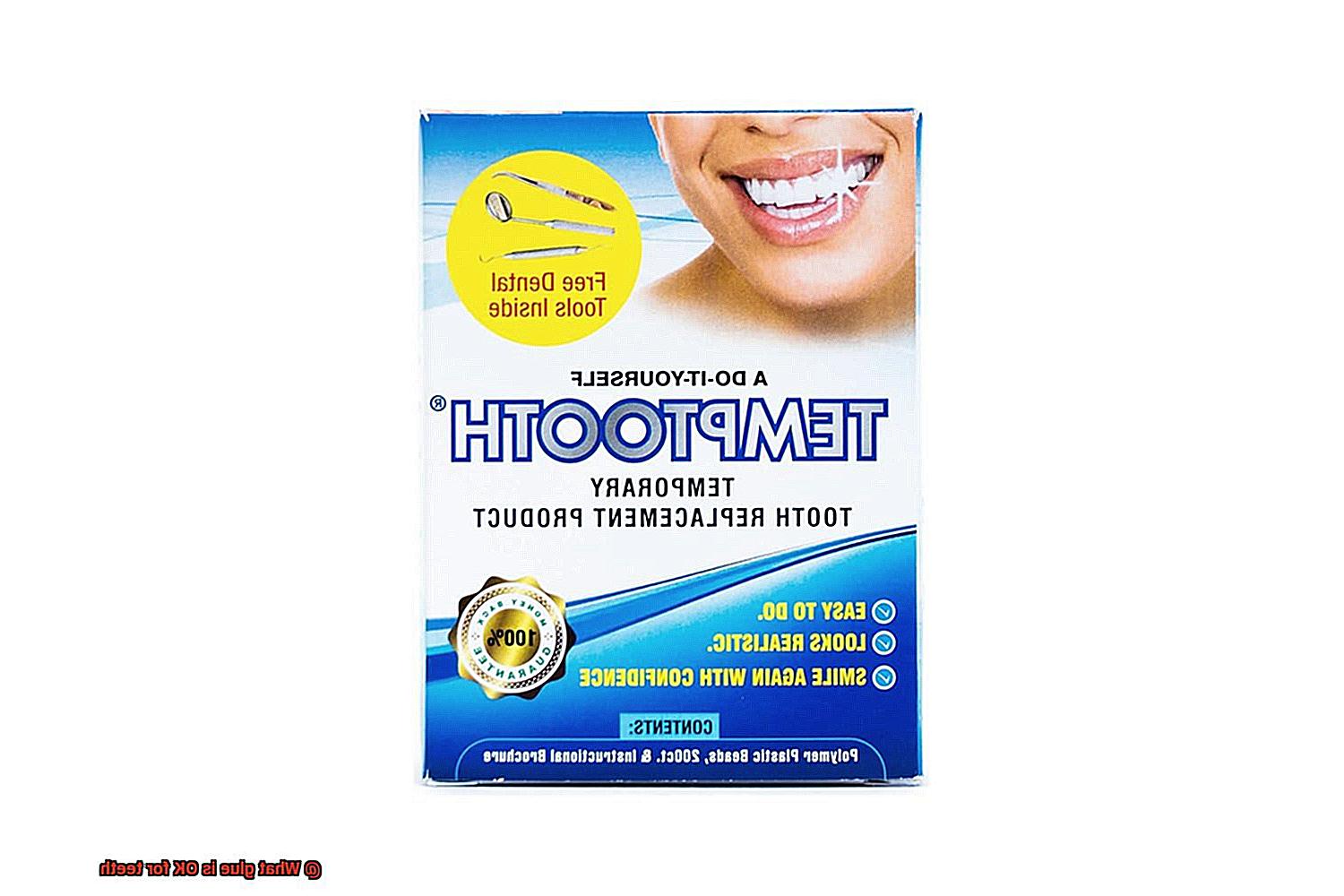
Clean and Dry the Tooth Surface
Before applying dental adhesive, make sure to clean the tooth surface thoroughly. Brush and floss beforehand, then use a dry cotton swab to remove any excess moisture. This will help remove debris or bacteria that could interfere with the bonding process.
Apply Thin Layers of Adhesive
It’s essential to apply thin layers of adhesive instead of thick ones. This will help ensure that the adhesive fully penetrates any gaps or irregularities in the tooth surface, resulting in a stronger bond. Using too much adhesive can result in excess material seeping out around the edges of the restoration.
Follow the Manufacturer’s Instructions
Different types of dental adhesives may have slightly different application instructions. Therefore, it is crucial to follow the manufacturer’s recommendations for best results. This includes following the recommended curing times and applying the recommended amount of adhesive.
Apply Gentle Pressure
After placing the restoration, apply gentle pressure for a few seconds to ensure that it sets properly. This will help strengthen the bond between the adhesive and the tooth surface. Avoid eating or drinking for at least an hour after applying dental adhesive to prevent disturbing the setting process.
Avoid Eating or Drinking
It’s essential to avoid eating or drinking anything for at least 30 minutes after applying dental adhesive. This will allow the adhesive to fully cure and bond with the tooth surface, resulting in a long-lasting bond.
Potential Risks of Improperly Using Dental Adhesive
When it comes to dental issues, using dental adhesive can be a lifesaver. However, improper use of this product can lead to potential risks that can harm your teeth and overall oral health. To avoid these risks, it is essential to use the right product and follow proper instructions.
One of the most common risks of improperly using dental adhesive is tooth damage. Using too much adhesive or applying it incorrectly can cause the adhesive to seep into the gums, causing inflammation and irritation. This can also lead to gum recession, which exposes the sensitive roots of your teeth and can cause pain and sensitivity. So, make sure to use only the recommended amount of adhesive and follow the manufacturer’s instructions carefully.
Another risk of improper dental adhesive use is the potential for toxic exposure. Some types of dental adhesives contain harmful chemicals that can cause health problems if ingested or inhaled. This is especially true for those who have a habit of biting their nails or chewing on objects, as they may accidentally ingest the adhesive. Therefore, it is crucial to keep dental adhesive out of reach of children and pets.
Additionally, using dental adhesive incorrectly can lead to poor oral hygiene. If the adhesive is not properly cleaned off or removed from your teeth, it can create a breeding ground for bacteria, which can lead to cavities, bad breath, and other oral health problems. It is crucial to follow proper cleaning procedures to ensure that there is no residual adhesive left on your teeth.
To summarize, it is essential to use dental adhesives carefully and according to instructions. Failure to do so can lead to tooth damage, toxic exposure, and poor oral hygiene. To avoid any potential risks, it is always best to consult with a dental professional before using any type of dental adhesive. By following these precautions, you can ensure that you are using the right product for your specific needs and avoiding any potential risks.
When to See a Dentist After Applying Dental Adhesive
Let me guide you through the signs that it’s time to seek professional help.
Dental adhesives are commonly used by people who have lost teeth and need prosthetics or dentures to be held in place. While they can be effective, they can also cause problems if not used correctly.
If you’re experiencing pain, discomfort, or unusual symptoms after applying dental adhesive, don’t wait to see a dentist. These symptoms may indicate an underlying issue that needs to be addressed. It’s essential to address any concerns as soon as possible.
Additionally, some dental adhesives contain harmful chemicals or allergens that can irritate the mouth or cause an allergic reaction. A dentist can help identify the cause of your symptoms and recommend a safe, alternative adhesive.
If you’re having difficulty fitting your prosthetics, it may be a sign that the adhesive isn’t strong enough, or your prosthetics need adjusting or replacing. A dentist can help you determine the best course of action.
Finally, if you notice any changes in your oral health or overall health after using dental adhesive, seek medical attention immediately. These changes may indicate a more serious underlying condition that requires immediate treatment.
Alternatives to Dental Adhesive
Whether you are allergic to traditional adhesives or simply prefer a more natural solution, there are several alternatives to dental adhesive that can provide a strong hold without the use of chemicals.
One popular option is denture cushions or pads. Made of soft and pliable materials, these cushions can be placed between the denture and gums to provide extra cushioning and grip. With various shapes and sizes available, you can find the perfect fit for your needs. Denture cushions are ideal for individuals who experience discomfort or irritation from traditional dental adhesives.
Another natural alternative is denture powder or paste, made from natural ingredients like calcium carbonate or xanthan gum. Applied directly to the denture before insertion into the mouth, these products provide a strong hold without the use of chemicals. However, it’s important to note that they may not work as well for those with dry mouth or excessive saliva production.
If you’re looking for a permanent solution to your dental issues, implant-supported dentures may be an excellent choice. This procedure involves surgically placing dental implants into the jawbone, which then support the denture. With this option, there is no need for adhesives or other temporary fixes, providing a secure and long-lasting solution. However, it’s important to note that this option is typically more expensive and requires a longer recovery time compared to traditional dentures.
Conclusion
When it comes to repairing a broken tooth or loose dental restoration, using any glue available may seem like the easiest option. However, not all adhesives are safe for your teeth and can cause harm or damage. It is crucial to choose the right type of glue to avoid causing harm or damage.
Superglue, epoxy glue, contact cement, industrial-strength adhesive, and household adhesives should be avoided as they contain harmful chemicals that can irritate your gums and cause damage to your teeth. Instead, it is best to use dental adhesives that are specifically designed for oral use. These types of adhesives provide numerous benefits such as strong and secure bonding, improved appearance of teeth, reduced sensitivity, prevention of further damage to natural teeth and a safe and effective solution.
For those with dentures or partials looking to make at-home repairs using dental adhesive can be beneficial. However, it is essential to select the right type of adhesive and apply it correctly to prevent any harm to your teeth or gums. When using dental adhesive at home follow these tips: clean dentures before applying adhesive; apply a small amount avoiding edges; place dentures in mouth and bite down firmly; monitor dentures throughout the day; remove and clean dentures daily.
It’s important to note that improper use of dental adhesives can lead to potential risks that can harm your teeth and overall oral health. If you experience pain or discomfort after using dental adhesive or notice changes in oral health or overall health seek medical attention immediately.
There are alternatives such as denture cushions/pads made from soft pliable materials that provide extra cushioning/grip without chemicals. Denture powder/paste made from natural ingredients like calcium carbonate or xanthan gum can also provide a strong hold without chemicals. Implant-supported dentures may be an excellent choice for a permanent solution to dental issues but are typically more expensive and require longer recovery time compared to traditional dentures.
In conclusion, when it comes to repairing your teeth or dental restorations, always choose the right adhesive for the job. Dental adhesives designed specifically for oral use are the safest and most effective option. Follow application instructions carefully and seek medical attention if you experience any pain or discomfort.

